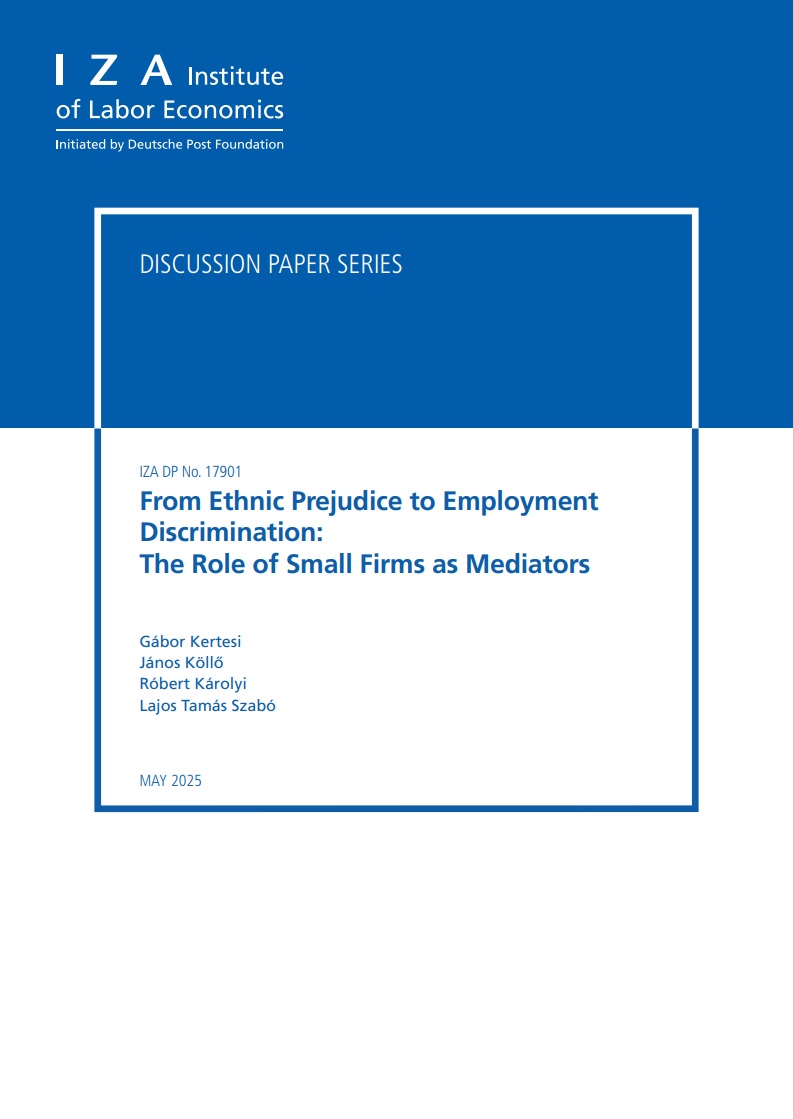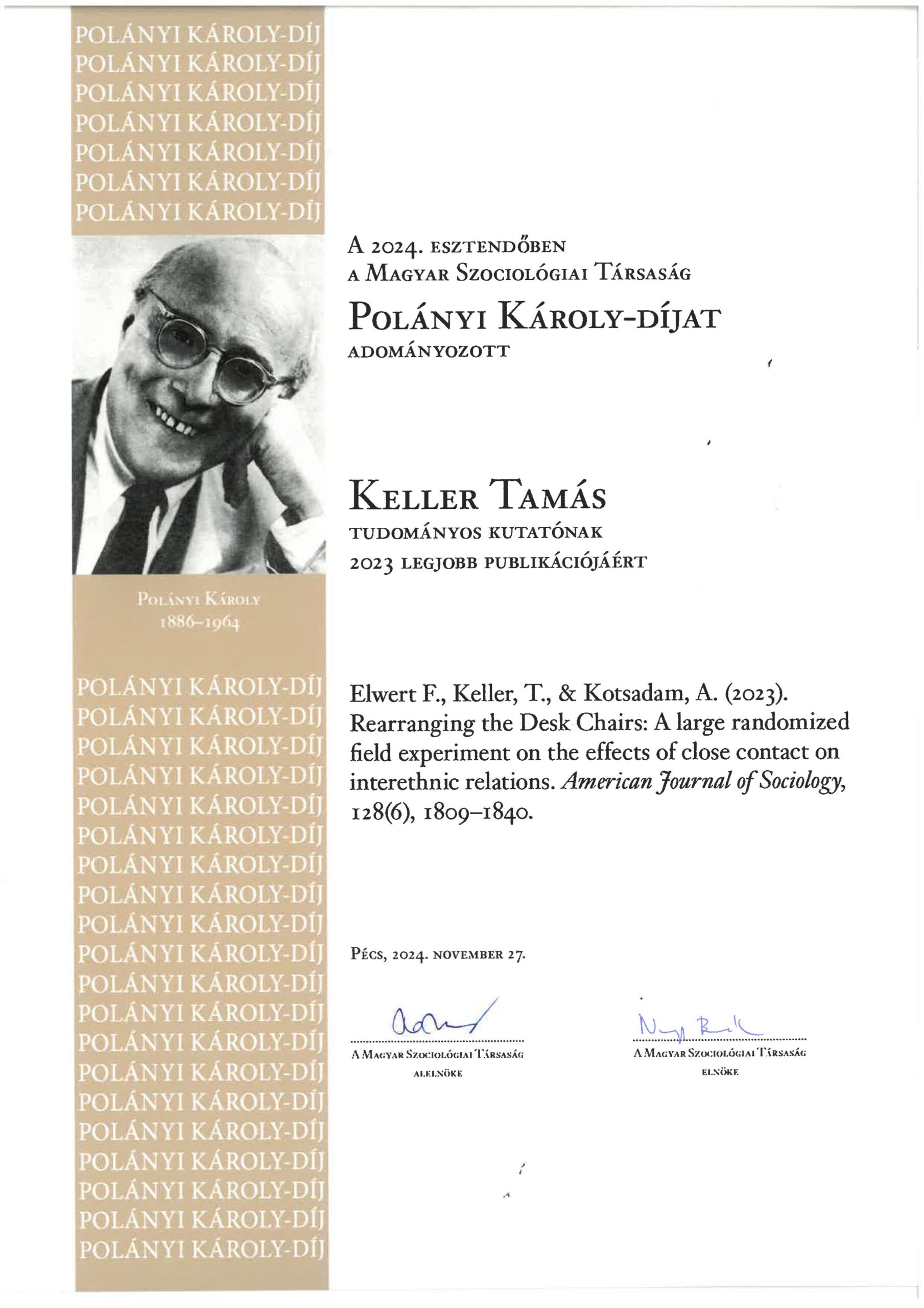In Utero Shocks and Health at Birth: The Distorting Effect of Fetal Losses
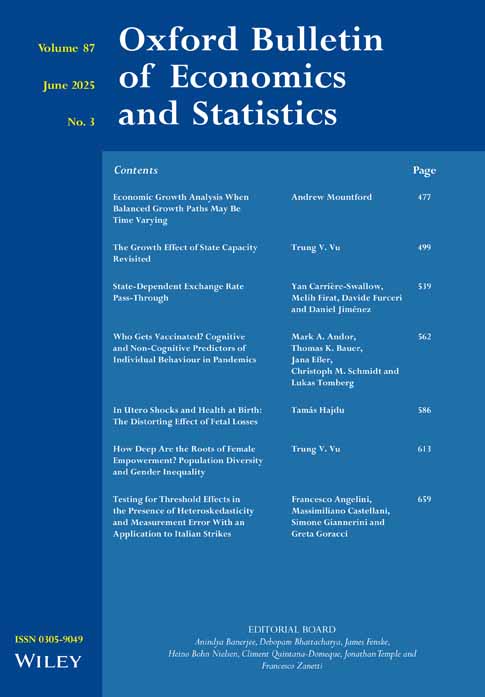
Tamás Hajdu Oxford Bulletin of Economics and Statistics, Vol. 87. No. 3. pp. 586-612. (2025) Abstract Research on the effect of in utero shocks on health at birth may be influenced by in utero selection. This study outlines a conceptual framework and shows that the results of the standard empirical approach are biased if (i) […]
Heterogenous impacts of climate change on morbidity
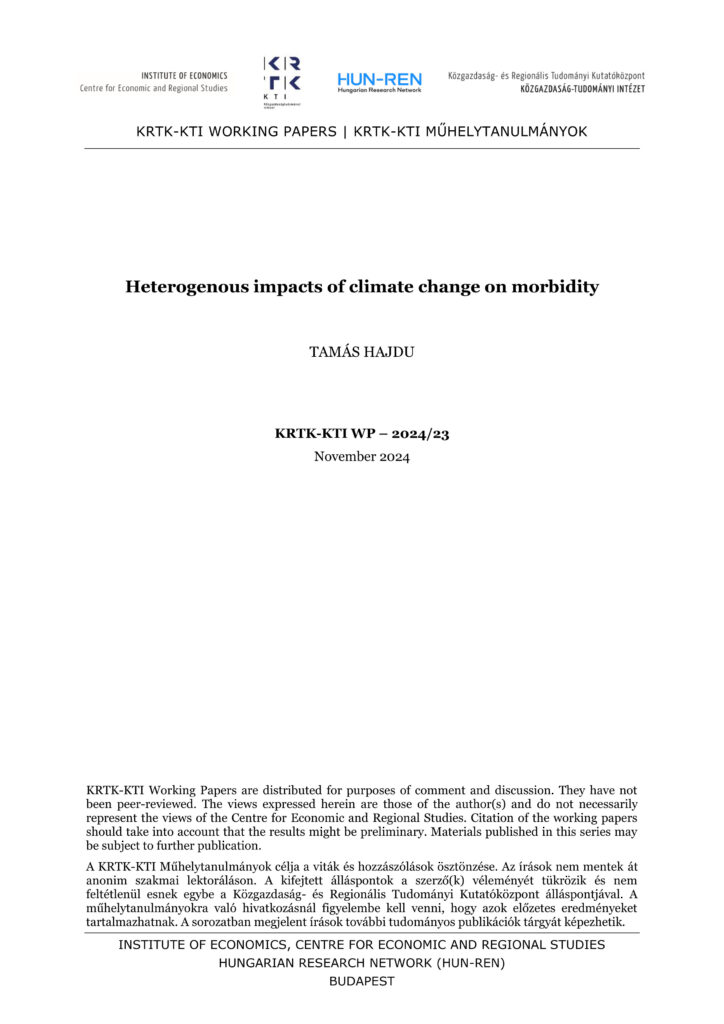
This paper examines the effect of temperature on emergency department (ED) visits using administrative data covering 50% of the Hungarian population and 3.52 million ED visits from 2009 to 2017. The results show that ED visit rates increase when average temperatures exceed 10°C, primarily driven by mild cases that do not result in hospitalization. Higher […]
Start-up Subsidies for the unemployed: Why do they seem so effective?
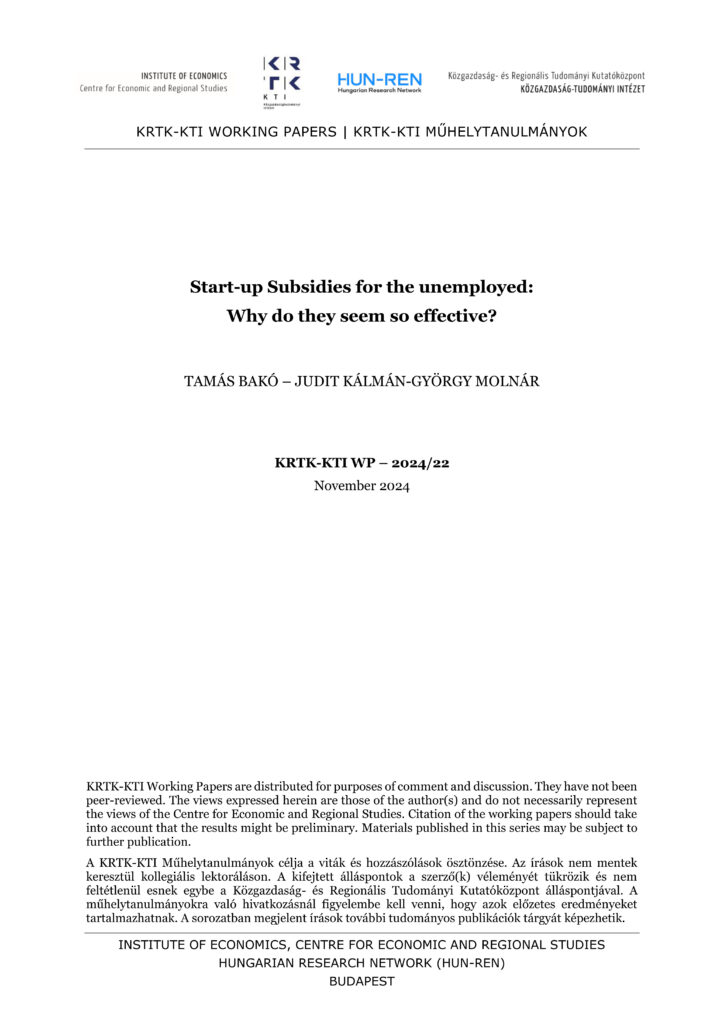
By using Hungarian administrative data we evaluate the impact of a start-up subsidy programme on the labour market integration of the unemployed. When – following the generally accepted method – the control group included everyone who could have participated in the programme but did not, the effect of the support was positive and consistent with […]
Services exporters and importers in Hungary
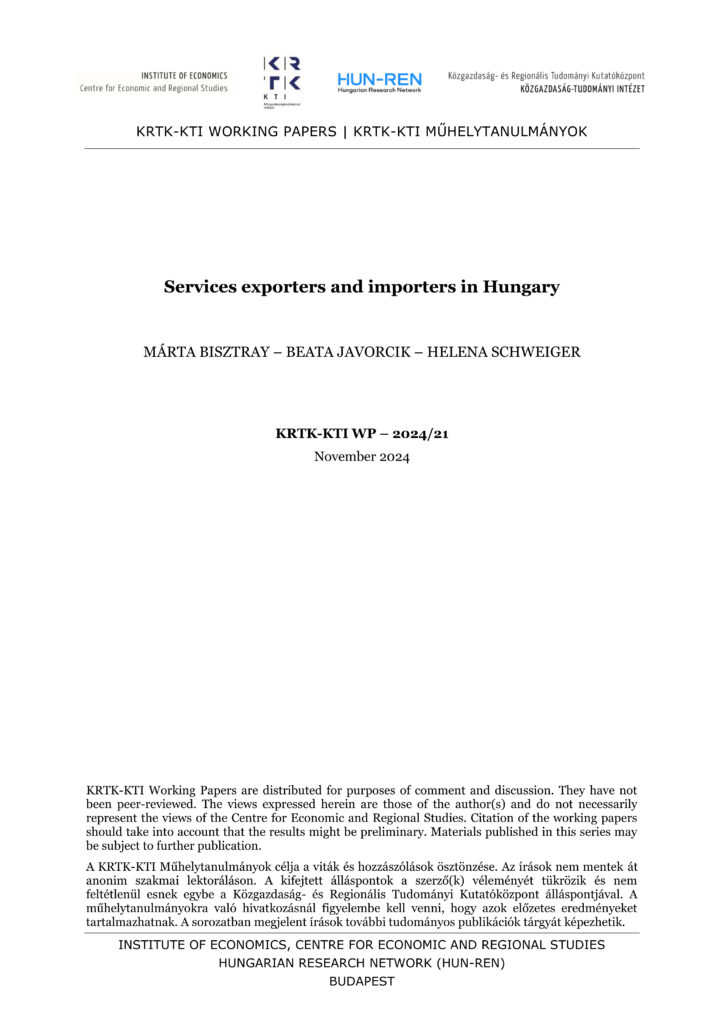
This paper uses rich firm-level data from Hungary to present some stylized facts on services trade. We show that (i) services exporters are even more rare than goods exporters; (ii) services exports are highly concentrated; (iii) services exporters are more likely than goods exporters to be located in cities; (iv) services exports tend to be […]
Szilárd Podruzsik and Imre Fertő’s article in the Open Agriculture
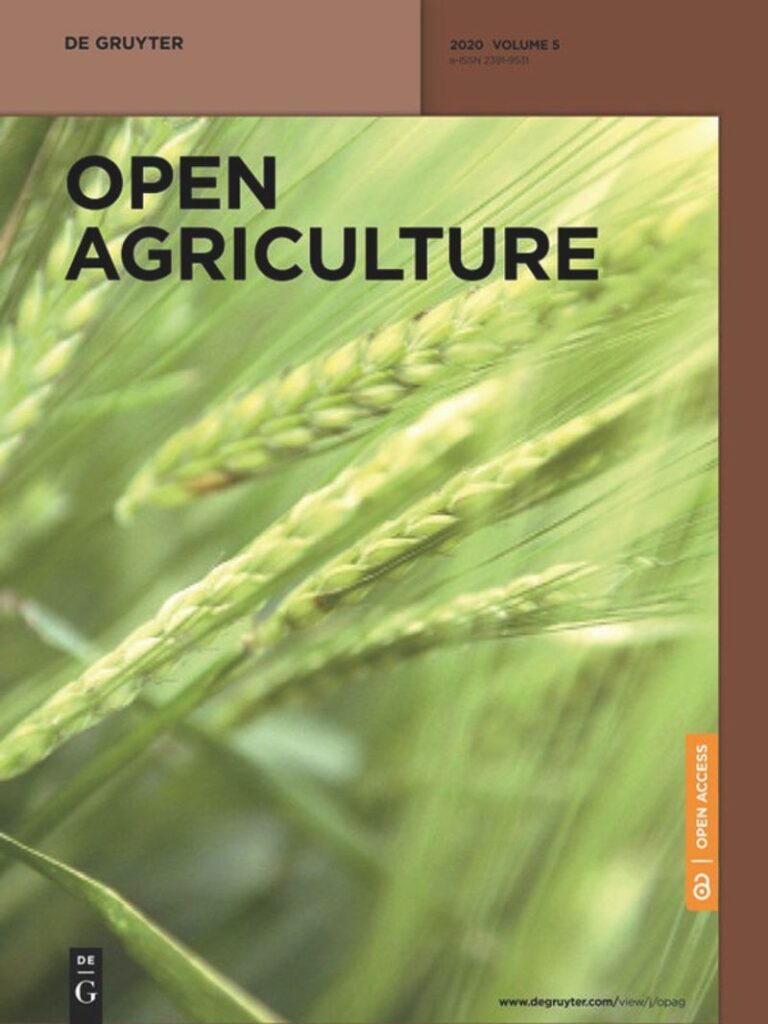
Motivations for farmers’ participation in agri-environmental scheme in the EU, literature review Szilárd Podruzsik and Imre Fertő Open Agriculture Vol. 9. No. 1. Abstract Agri-environmental schemes (AESs) play a pivotal role in aligning agricultural practices with environmental objectives, promoting sustainable land management, and conserving biodiversity. This article presents a comprehensive synthesis of recent advancements in AES research within […]
Occupational and job mobility during the pandemic
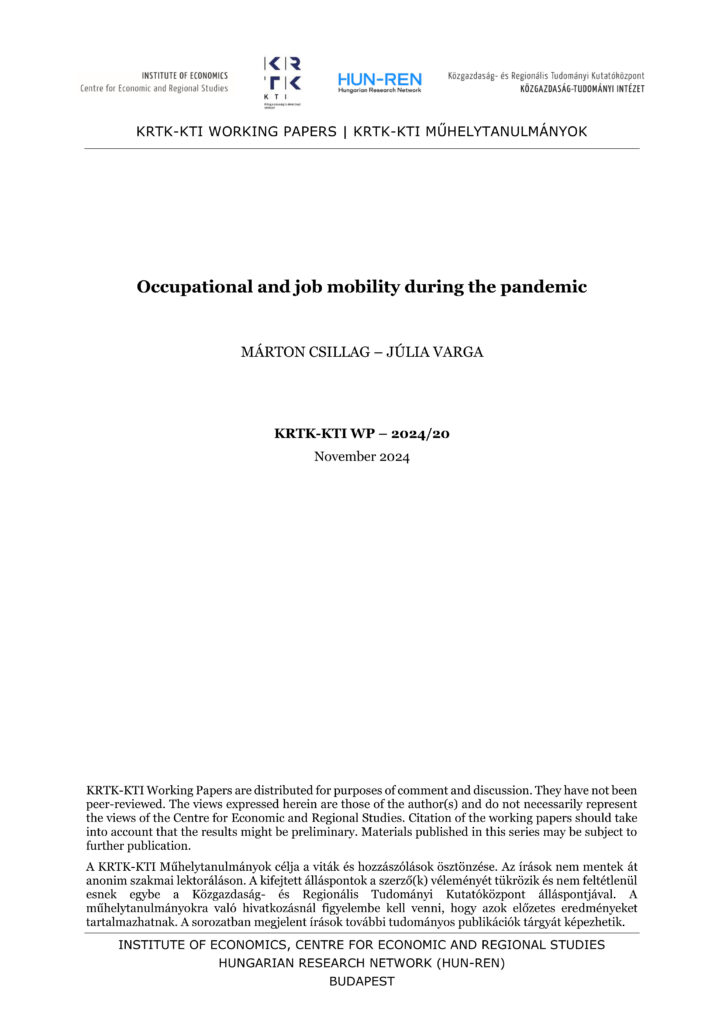
Using individual-level EU-LFS data from nine European countries, this study analyses how the probability of occupational and job mobility has changed in the first year of the COVID pandemic in nine European countries compared to previous years. We show that the probability of leaving a job increased slightly, and the probability of changing occupations and […]
The Return of Diverse Higher Education Pathways
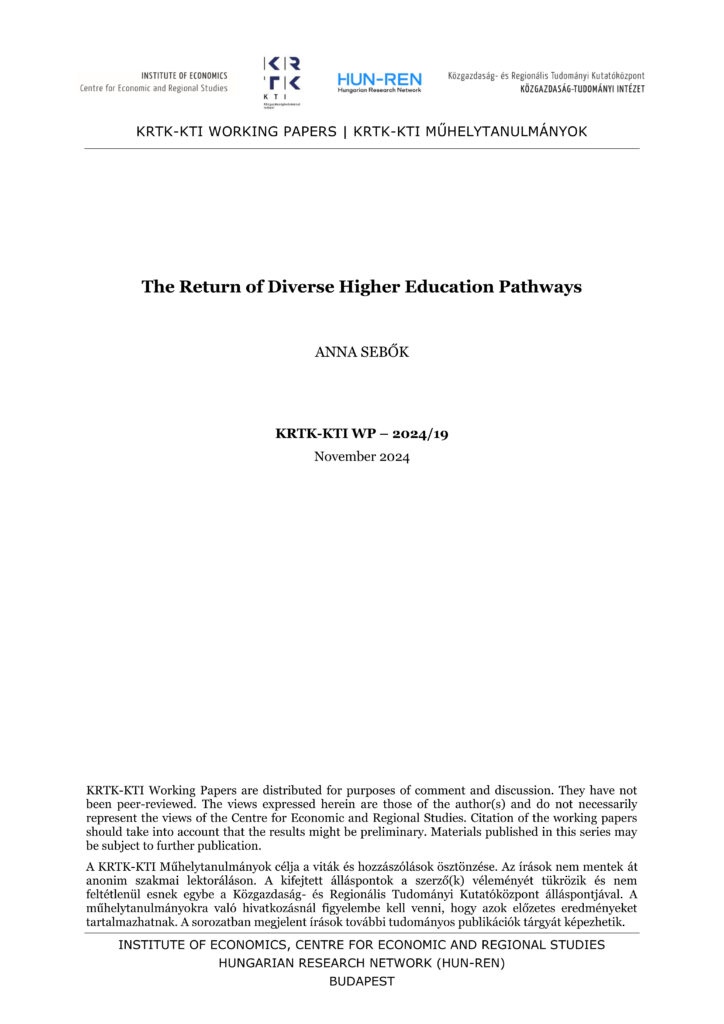
The expansion of higher education has resulted in a fragmentation of student careers on a global scale. The number of students pursuing atypical pathways has been growing. In the European Union, the Bologna Process has facilitated the mobility of students across higher education institutions, the transition between different courses of study, increasing the diversity of […]
Occupational regulation and labour market fluidity in ten European Countries
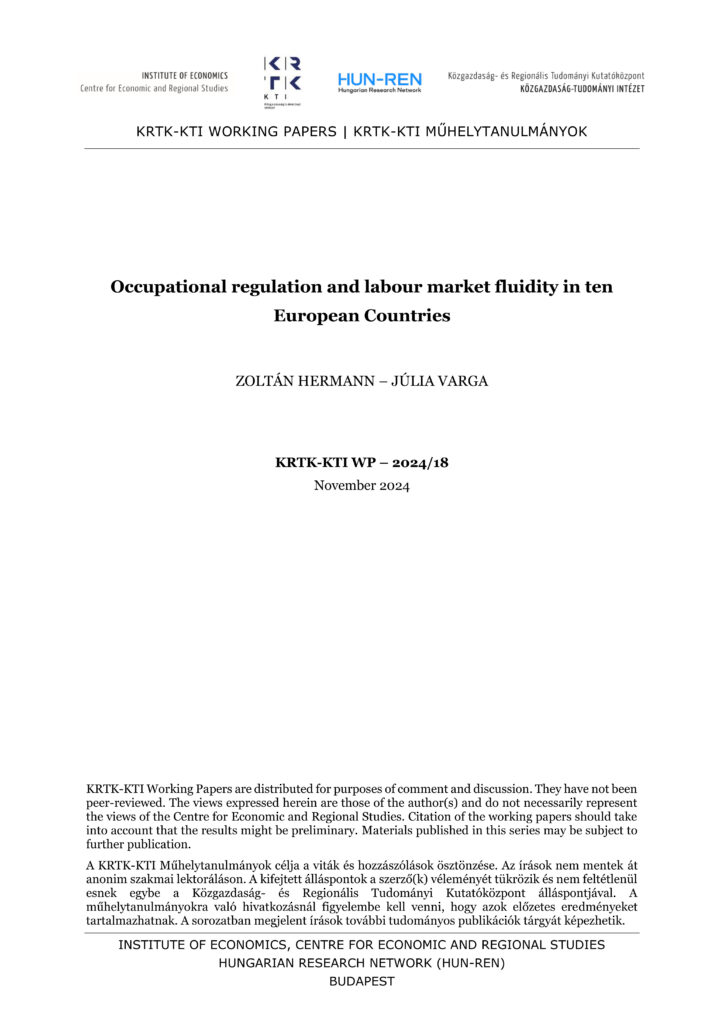
This paper examines the impact of occupational regulation, a labour market institution affecting many workers, on labour market fluidity in Europe. Using data from 10 European countries, we estimate the effect of occupational regulation on occupational mobility (transition to another occupation) and job loss (transition from employment to unemployment). By leveraging the variation in regulation […]
Dorottya Kisfalusi – Zoltán Hermann – Tamás Keller’s article in the European Sociological Review

Discrimination in track recommendation but not in grading: experimental evidence among primary school teachers in Hungary Dorottya Kisfalusi – Zoltán Hermann – Tamás Keller European Sociological Review, Published: 16 November 2024 Abstract This study examines discrimination in teacher assessments and track recommendations against Roma minority students in Hungary. We conducted a pre-registered randomized experiment among […]
Benedek, Zsófia and Fertő, Imre’s article in Heliyon journal

What makes a devoted local-food-buying club customer? Zsófia Benedek – Imre Fertő Heliyon Volume 10, Issue 23, December 15, 2024 Abstract Local food-buying clubs (LFBCs) are special types of consumer-driven grassroots groups that are particularly well suited to enhancing the transition to a post-growth economy, given the finite growth potential of individual communities, the tendency of groups to distribute […]
New article by Attila Gáspár and his co-authors was published in The Journal of Economic Inequality
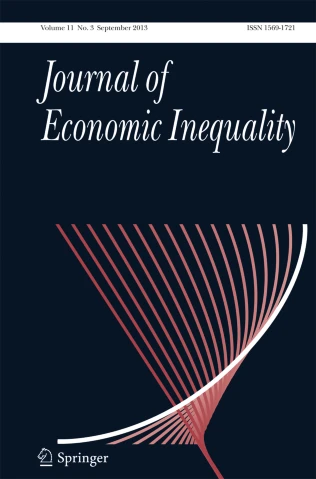
Inequality perception and preferences globally and locally – correlational evidence from a large-scale cross-country survey Attila Gáspár – Carmen Cervone – Federica Durante – Anne Maass – Caterina Suitner – Roberta Rosa Valtorta & Michela Vezzoli The Journal of Economic Inequality – Published: 17 October 2024 Abstract Using a large, representative survey involving […]
R. Maria del Rio-Chanona – Nadzeya Laurentsyeva – Johannes Wachs’s article in the PNAS Nexus (2024)

Large language models reduce public knowledge sharing on online Q&A platforms R. Maria del Rio-Chanona – Nadzeya Laurentsyeva – Johannes Wachs PNAS Nexus Volume 3. No. 9. 2024 Published: 11 September 2024 Abstract Large language models (LLMs) are a potential substitute for human-generated data and knowledge resources. This substitution, however, can present a significant problem for the […]


